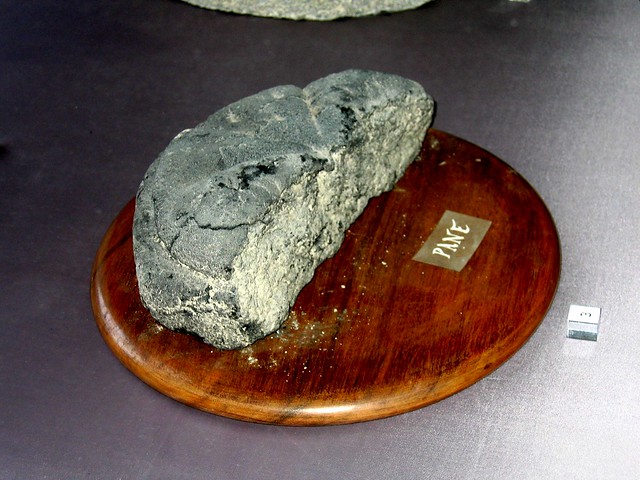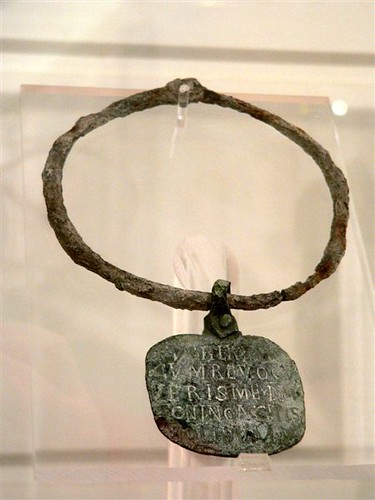Me aparto un poco de la temática habitual de este blog, espero que no os moleste, para relataros una de las historias más sorprendentes que he descubierto recientemente (gracias al blog
Letters of Note, al que vale la pena dedicarle un ratito): Se trata de
la historia de Jourdon Anderson, un esclavo de color que tras la Guerra Civil Americana encontró la libertad y prosperó en el lejano Norte americano. Hasta aquí podría tratarse de uno más de los centenares de miles de esclavos americanos que huyeron al norte y ganaron su libertad... pero ya sabeis que mí me gusta traeros historias fuera de lo común...
... en Agosto de 1865, su antiguo dueño, el Coronel P.H. Anderson del pueblo de Big Spring en el Estado de Tennessee, le escribió una carta a Jourdon Anderson, conminándole a regresar a trabajar en su granja. Jourdon, que
desde su emancipación se había mudado a Ohio, había encontrado un trabajo digno y remunerado (un pequeño detalle), y mantenía económicamente a su familia. Por todo ello, la respuesta a su antiguo dueño fue del todo inesperada; le envió una carta magistral, de la cual ni sobra ni falta una sóla palabra.
Os dejo el texto completo de la carta, que por respeto no me atrevo a traducir del inglés...
Dayton, Ohio,
August 7, 1865
To My Old Master, Colonel P.H. Anderson, Big Spring, Tennessee
Sir: I got your letter, and was glad to find that you had not forgotten
Jourdon, and that you wanted me to come back and live with you again,
promising to do better for me than anybody else can. I have often felt
uneasy about you. I thought the Yankees would have hung you long before
this, for harboring Rebs they found at your house. I suppose they never
heard about your going to Colonel Martin's to kill the Union soldier
that was left by his company in their stable. Although you shot at me
twice before I left you, I did not want to hear of your being hurt, and
am glad you are still living. It would do me good to go back to the dear
old home again, and see Miss Mary and Miss Martha and Allen, Esther,
Green, and Lee. Give my love to them all, and tell them I hope we will
meet in the better world, if not in this. I would have gone back to see
you all when I was working in the Nashville Hospital, but one of the
neighbors told me that Henry intended to shoot me if he ever got a
chance.
I want to know particularly what the good chance is you propose to give
me. I am doing tolerably well here. I get twenty-five dollars a month,
with victuals and clothing; have a comfortable home for Mandy,—the folks
call her Mrs. Anderson,—and the children—Milly, Jane, and Grundy—go to
school and are learning well. The teacher says Grundy has a head for a
preacher. They go to Sunday school, and Mandy and me attend church
regularly. We are kindly treated. Sometimes we overhear others saying,
"Them colored people were slaves" down in Tennessee. The children feel
hurt when they hear such remarks; but I tell them it was no disgrace in
Tennessee to belong to Colonel Anderson. Many darkeys would have been
proud, as I used to be, to call you master. Now if you will write and
say what wages you will give me, I will be better able to decide whether
it would be to my advantage to move back again.
As to my freedom, which you say I can have, there is nothing to be
gained on that score, as I got my free papers in 1864 from the
Provost-Marshal-General of the Department of Nashville. Mandy says she
would be afraid to go back without some proof that you were disposed to
treat us justly and kindly; and we have concluded to test your sincerity
by asking you to send us our wages for the time we served you. This
will make us forget and forgive old scores, and rely on your justice and
friendship in the future. I served you faithfully for thirty-two years,
and Mandy twenty years. At twenty-five dollars a month for me, and two
dollars a week for Mandy, our earnings would amount to eleven thousand
six hundred and eighty dollars. Add to this the interest for the time
our wages have been kept back, and deduct what you paid for our
clothing, and three doctor's visits to me, and pulling a tooth for
Mandy, and the balance will show what we are in justice entitled to.
Please send the money by Adams's Express, in care of V. Winters, Esq.,
Dayton, Ohio. If you fail to pay us for faithful labors in the past, we
can have little faith in your promises in the future. We trust the good
Maker has opened your eyes to the wrongs which you and your fathers have
done to me and my fathers, in making us toil for you for generations
without recompense. Here I draw my wages every Saturday night; but in
Tennessee there was never any pay-day for the negroes any more than for
the horses and cows. Surely there will be a day of reckoning for those
who defraud the laborer of his hire.
In answering this letter, please state if there would be any safety for
my Milly and Jane, who are now grown up, and both good-looking girls.
You know how it was with poor Matilda and Catherine. I would rather stay
here and starve—and die, if it come to that—than have my girls brought
to shame by the violence and wickedness of their young masters. You will
also please state if there has been any schools opened for the colored
children in your neighborhood. The great desire of my life now is to
give my children an education, and have them form virtuous habits.
Say howdy to George Carter, and thank him for taking the pistol from you when you were shooting at me.
From your old servant,
Jourdon Anderson.
Si quereis saber qué se hizo del bueno de Jourdon Anderson y de su familia,
en el blog de Kottle teneis muchos más detalles...
Artículos relacionados: La esclavitud en la Antigüedad
¿Quieres saber más sobre Historia Clásica y Antigua?

Puedes subscribirte al feed RSS de
www.historiaclasica.com o bien
seguirme por Twitter
























